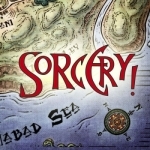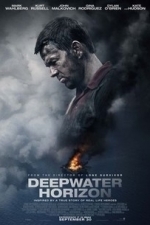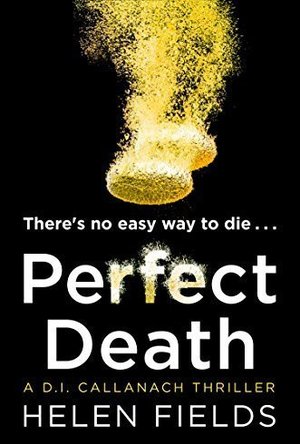
Ultimate Forest Simulator
Games and Education
App
Dash into your newest adventure as a ferocious Bear, speedy Rabbit, or a deadly Cougar! Choose from...
Bob Mann (459 KP) rated Deepwater Horizon (2016) in Movies
Sep 29, 2021
The exploratory project is way-behind and BP are not happy. Big-wigs from the company add support to Donald Vidrine, the BP site leader, in applying mounting pressure on Harrell to press on regardless without all the necessary and time-consuming tests by Schlumberger being completed. Rogue numbers in further tests are waved away as ‘glitches’. A familiar story of corporate greed and pressure overriding the expert’s better judgment.
When disaster strikes it strikes quickly, with some spectacular and exciting special effects that leave the audience especially hot under the collar. Female support is provided by the comely Andrea Fleytas (Gina Rodriguez), given the almost impossible job of keeping the floating bomb on station as chaos reigns about her. As an audience we are back on familiar ground here from classic Irwin Allen disaster movies such as “The Towering Inferno” and “The Poseidon Adventure”. Who will make it, and who won’t?
A more telling question here is “Do we care?” and unfortunately for the film, the answer is “Not really”. This feels a callous thing to say when this was a real and recent event and eleven people and – as touchingly illustrated at the end of the film in tribute – many of them family men with young kids, never went home again. But film-wise, we only really get bought into the fate of Williams, whose back-story, with cute wife (Kate Hudson) and cute daughter (Stella Allen) we get to meet and sympathize with.
We get a minimalist view of Fleytas’s backstory, but only enough to provide a recurring “Mustang” reference. And that’s it. All the other characters are just two-dimensional “rig crew”: cannon-fodder for the special effects team. The screenplay by Matthew Sand and Matthew Carnahan really doesn’t deliver enough heft to get us bought in.
While the special effects are good, the sound design isn’t, with much of the dialogue being incomprehensible.
All the acting is fine, with the ever-watchable John Malkovich nicely portraying the corporate head you love to hate. Wahlberg as well delivers enough range to make you forget in this “action mode” that he was also in “Ted”. And Rodriguez as a junior lead holds her own against the big guns in what is a creditable performance in a big film role for her.
While “Lone Survivor”/”Battleship” director Peter Berg neatly provides an insight into life on and around rigs, and (via subtitles) descriptions of the drilling process which I found interesting, this comes down to the sum of a tense build up, an hour of frenetic disaster, and then a whimper of an ending. Where were some of the dramatic scenes of conflict in the congressional hearing that the film’s opening implies might come? Where are the scenes of ecological disaster and local financial ruin to add emotional angles to the story? None of this is really exploited and the whole concoction comes across a bit “meh” as a result. Not a bad film by any means. But not one I will remember in a month or two’s time.
Eilidh G Clark (177 KP) rated Dirt Road in Books
May 13, 2017
While this may appear a simple story line, Kelman’s exploration into the fragmented relationship between father and son gives the reader an honest analysis of family and grief. The third person narrator, with bursts of free indirect discourse from Murdo, allows the reader both an internal and external insight into the constraints of family. This parallel leaves the reader feeling uncomfortable, yet with a conflicting heart. This is Kelman’s unique writing style at its best.
Dirt Road is more than a novel of grief and family relationships though; it is a novel of risk, of following new paths with uncertainties, about leaving behind the familiarities and safety of the past and following the heart. It is about deep connections; for Murdo this is through music and the feeling of freedom that he associates with music, whilst for the other characters it is about cultural connections and Scottish ancestry. Kelman’s clever use of parallels shows the reader the intensity of human connections whilst suggesting that change and progression is possible. This great novel will linger in your thoughts for weeks after you put it down, and it brings to mind a poem by Robert Frost, The Road Not Taken
I shall be telling this with a sigh
Somewhere ages and ages hence:
Two roads diverged in a wood, and I—
I took the one less traveled by,
And that has made all the difference.
For the full poem visit (https://www.poetryfoundation.org).
Dirt Road by James Kelman
Canongate Books (14 July 2016)
Lee (2222 KP) rated Men in Black International (2019) in Movies
Jun 16, 2019
The movie begins in 2016, with Agent H (Chris Hemsworth) and High T (Liam Neeson) as they ascend the Eiffel Tower, interrupting a man who is about to propose to his partner, before saving the world from an incoming alien race called The Hive. Then we jump back 20 years into the past to a family who are disturbed one night by a cute little alien in their back garden. As the young daughter, Molly, hides the alien in her bedroom, she looks out of her window to see her parents as they are neuralysed by a couple of Men in Black.
Back in present day, Molly (Tessa Thompson) is now all grown up, but hasn't forgotten that eventful night. While working in a call centre, she uses her computer to connect to satellite equipment in order to track alien landings and therefore try and gain access to the Men in Black, and hopefully get a job with them. Eventually finding her way into their headquarters, she is recruited by Agent O (Emma Thompson) and sent on her first mission, where she partners up with Agent H. The pair get caught up in a mission involving an assassinated alien VIP and some kind of super weapon. And, as the title of the movie suggests, plenty of international travel, as we switch between New York, London, Paris and Marrakesh.
The problem is, whereas the original Men in Black boasted a lot of humour, along with some great visual gags and action and a great double act, in the form of Will Smith and Tommy Lee Jones, this movie does nothing to successfully recapture any of that. As much as I love Chris Hemsworth, I felt that he was the worst thing about this movie. Somebody simply thought they'd take the character of Thor and try to have that for the entire movie, but without making him funny, heroic or even that likeable in the process. As with Dark Phoenix recently, a great cast is let down by an awful script, with any attempts at humour or entertainment falling completely flat.
Elsewhere, the fun and wacky inventiveness behind the different alien species in the original movie is completely absent here. Apart from some interesting and formidable twin villains, there's a fairly wasted role for Rebecca Ferguson as a three armed ex lover of Agent H. Otherwise, the main alien throughout the movie is just an annoying little CGI character.
To be fair, there are a couple of fun action sequences and some nice visuals, but overall this is just a completely forgettable and unnecessary movie. Here's hoping that Toy Story 4 will finally bring us a worthy blockbuster when it opens later this week.

pro soccer 2016 game - free football head games
Games
App
Are you a football maniac? Do you have football frenzy? If yes, Best Real Speed Pro football 2016...
Ross (3284 KP) rated Perfect Death in Books
Sep 28, 2018
As with the previous two books, we join the story at the start of two independent investigations, which inevitably expand and take up the whole team's efforts (it's almost as if there was no crime in the city before these came along as no other cases seem to be mentioned or worked on!). We have the apparent death by misadventure of a young girl on the hills around Arthur's Seat, and the apparent suicide of former DCI Begbie.
Both cases are interesting and very different, the former being a more typical murder investigation, the latter being more focused on police corruption and the Glasgow gangland (I do enjoy the fact that any nasty gangsters in these Edinburgh-based stories have to be based in Glasgow, almost like they are sponsored by the Edinburgh tourist board, or someone with an anti-East Coast agenda).
While the murder investigation is decent, a number of clangers really spoiled it for me. We have a young man who appears to be poisoning people after having ingratiated themselves into their lives and the lives of their loved ones under different false names. However, as is so often the case in these stories, the killer is made too clever to be caught (at least too clever to be caught in under 300 pages!), and so the slightest mistake or piece of luck is what the investigation hinges on. Here it transpires that, while the killer has used false names in every interaction, in one of them he seems to have for some reason used the name of someone who leads the police directly to his backstory and hence uncovering his real identity. This piece of Batman vs Superman ("Your Mom was called Martha?!") level plot pivot was just so jarring and so out of character for this supposedly clever murderer. And yet without it there was pretty much no way of the murderer being found. For a secret poisoner to then start waving a gun around was also a bit hard to accept.
And also, all characters seem to be very well spoken. We have a young man who grew up in care homes from the age of 5, a Glasgow gangster and his henchmen and numerous bad sorts along the way and all are very well spoken, to the point that none of them have a voice and are just ... there. And, of course everyone refers to the police in the same way as the police refer to themselves - I cannot imagine anyone referring to a policeman as "DI something" or ""your DCI said this". It just totally jars and again comes across as the author simply inserting their voice into the mouths of characters that they could not be bothered to properly consider.
This brings me on to the dialogue gripe. I have always struggled to accept the formality in the way fictional detectives speak to members of the public. I get that interviews etc have to be carried out in a certain way, but at one point DCI Turner is speaking to a 17 year old boy about the death of his mother and she says "I cannot leave someone who might be a danger to themselves without establishing first-hand contact". This just struck me as the author inserting a piece of research into dialogue rather than considering how that point would be addressed in a human conversation. Similarly, at one point a DC refers to one of the victims as "she" and Callanach snapped at her "We use victims' names not pronouns", which just struck me as an odd thing to say, and at several times throughout the book he himself refers to victims with pronouns.
And finally, while there was never a great deal of swearing in the first two books, it was believable swearing. Here we have the occasional use of "frigging" instead of the other "f" word, which I cannot think I have ever heard a Scottish person say, unless singing along to the Sex Pistols sea shanty.
Overall, I give this book 4 stars for the plot, 3 stars for the writing, then averaged out and rounded down for the annoying little things.
A definite step down from the second book, and a more slapdash feel to it.
Barbados GPS Map Navigator offline charts & guide
Navigation and Travel
App
!! TRY before BUY !!! Try now the new FlyToMap web viewer to see all available maps worldwide !!!...

Malta - GPS offline chart & spot Navigator
Navigation and Travel
App
!! TRY before BUY !!! Try now the new FlyToMap web viewer to see all available maps worldwide !!!...
Bob Mann (459 KP) rated The Meg (2018) in Movies
Sep 28, 2021
Jason Statham – the unthinking man’s Dwayne Johnson – plays our hero Jonas Taylor. (Jonas? Surely some sly joke?). Jonas is drinking his life away in Thailand after being traumatised by an underwater rescue mission in which he was 90% successful. (Yeah, I know. Bloody perfectionists. Hate ’em). But he is needed again, since his cute ex-wife Lori (Jessica McNamee) is stuck at the bottom of the sea being terrorised by a terrifying creature: no, not Spongebob Square Pants… the titular prehistoric shark.
Lori is working at an undersea research station – Mana One – off the coast of China, funded by the annoyingly brash billionaire Morris (Rainn Wilson, from “The Office”), who you just HOPE HOPE HOPE will get munched at some point!
Running the station (in the most shameless Hollywood/Chinese market crossover since “The Great Wall“) is Zhang (Winston Chao) assisted by his cute daughter Suyin (played by the gloriously named and very talented Bingbing Li) and his even cuter granddaughter Meiying (Sophia Cai). The race is on to use their brains and Taylor’s brawn to stop the monster from reaching the seaside resort of Sanya Bay for lunch.
The action is, of course, absurd with so many near misses for Jonas from gnashing teeth that he could be The Meg’s registered dentist. There is a really nice dynamic though built up between Jonas, his potential cross-cultural love interest Suyin and young Meiying. Suyin is a classic TimesUp heroine for 2018, with an assertive f***-you attitude and not remotely giving an inch to Statham’s hero.
But it’s young Sophia as Meying who really steals lines and steals hearts with a truly charming performance, and would get my ‘man of the match’ were it not for…
…research assistant Jaxx (Australian model, Ruby Rose). She has an absolutely extraordinary look in this film. Chiselled and tattooed, she literally looks like she has stepped out of a Final Fantasy video game… and acts well too: the complete package.
As referenced above, the Hollywood/Chinese crossover is quite striking in this film, with the Chinese beach location looking like Amity Island on crack! (Cue the overweight Chinese kid as the Jaws “Alex” replacement… who knew China had a child obesity issue too… and that they also have ‘Zoom’ ice lollies!) Unusually for a mainstream Western film, a significant number of lines in the film are in Chinese with English subtitles.
In the league table of shark movies, it is far nearer to “Deep Blue Sea” than it is to “Jaws”, the reigning league champion, and all are far in excess of the ridiculous “Sharknado”. But compared to “Deep Blue Sea”, and even compared to “Jaws” – now, astonishingly, 43 years old! – it’s a curiously bloodless concoction, presumably to guarantee it’s 12A certificate. I have seen far bloodier and more violent 12A’s, and if anything I think director Jon Turteltaub (“National Treasure”) rather overdid the sanitisation.
It’s not going to win many gongs at the Oscars, but it is a slice of movie fun nonetheless.






